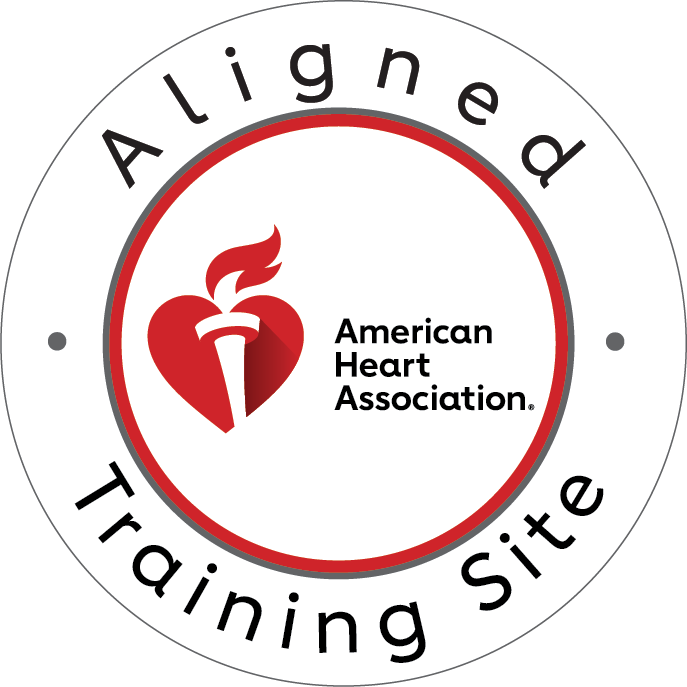In the chaos of an emergency, every second counts. Whether it’s a sudden cardiac arrest, a severe allergic reaction, or a traumatic injury, the immediate actions taken by those present can mean the difference between life and death. This is where the critical importance of first aid comes into play.
First aid is the initial assistance or care provided to someone who is injured or suddenly ill before professional medical help arrives. It encompasses a range of simple, yet potentially life-saving techniques, from applying pressure to stop bleeding to performing cardiopulmonary resuscitation (CPR) to maintain circulation and oxygenation.
However, knowing how to administer first aid isn’t just a matter of common sense—it requires specific knowledge and training. This is where first aid certification plays a pivotal role.
First aid certification goes beyond basic knowledge. It provides individuals with the necessary skills, techniques, and confidence to respond effectively and efficiently in emergency situations. By undergoing first aid certification, individuals become equipped to recognize the signs and symptoms of various medical emergencies, assess the situation, and take appropriate action to provide immediate care until professional medical help arrives.
However, the importance of first aid certification extends far beyond the individual level. It has a profound impact on the safety and well-being of entire communities. Imagine a workplace where every employee is trained in first aid, and ready to respond swiftly and confidently in the event of an accident or medical emergency. Or a school where teachers and staff members are equipped with the skills to intervene effectively in situations involving students’ health and safety. In these settings, first aid certification becomes not just a valuable asset, but a vital necessity.
The Importance of First Aid Certification
First aid certification serves as a cornerstone of preparedness in emergency situations. It transforms bystanders into responders, empowering them to take immediate action when every second counts. Here’s why first aid certification is so crucial:
- Immediate Response: In emergencies, time is of the essence. First aid certification ensures that individuals are equipped to act promptly and decisively, minimizing the delay between the onset of a medical crisis and the initiation of life-saving interventions. Whether it’s administering CPR to a person in cardiac arrest or stabilizing a traumatic injury, certified individuals can provide crucial assistance until professional medical help arrives.
- Life-saving Skills: First aid certification goes beyond basic bandaging techniques. It encompasses a wide range of skills and procedures tailored to address various medical emergencies, from managing airway obstructions to controlling severe bleeding. By mastering these skills through certification, individuals gain the ability to intervene effectively in critical situations, potentially saving lives in the process.
- Confidence and Competence: Knowledge breeds confidence, especially in high-pressure situations. First aid certification instills individuals with the confidence and competence to act decisively when faced with medical emergencies. Through hands-on training and simulations, certified individuals develop the skills and mindset necessary to remain calm and focused, even amid chaos.
- Public Safety: The benefits of first aid certification extend beyond individual readiness to encompass public safety on a broader scale. In workplaces, schools, and community settings, the presence of certified individuals can significantly enhance the overall level of emergency preparedness. By creating a culture of safety and empowerment, first aid certification helps to build resilient communities where everyone plays a role in ensuring the well-being of others.
- Legal and Ethical Responsibilities: In many jurisdictions, there are legal and ethical expectations for individuals to assist in emergency situations to the best of their abilities. First aid certification not only equips individuals with the skills to meet these expectations but also provides a framework for understanding the legal and ethical implications of their actions. By adhering to established protocols and standards, certified individuals can ensure that their interventions are both effective and appropriate.
In essence, first aid certification serves as a linchpin of emergency preparedness, enabling individuals to respond swiftly, confidently, and competently when lives are on the line. By recognizing the importance of first aid certification and investing in training opportunities, we can all play a role in safeguarding the health and safety of our communities.
Empowering Individuals to Respond Effectively
First aid certification is more than just a piece of paper—it’s a transformative experience that empowers individuals to become proactive responders in times of crisis. Here’s how first aid certification empowers individuals to respond effectively:
- Comprehensive Training: First aid certification courses provide comprehensive training on a wide range of medical emergencies and injuries. Participants learn how to recognize signs and symptoms, assess the severity of a situation, and apply appropriate interventions. From basic wound care to advanced life support techniques, certified individuals are equipped with the knowledge and skills needed to address diverse medical scenarios.
- Hands-on Practice: Theory alone is insufficient in emergencies. First aid certification courses emphasize hands-on practice to reinforce learning and build muscle memory. Participants engage in simulated scenarios that replicate real-life emergencies, allowing them to apply their knowledge and skills in a controlled environment. Through repeated practice, certified individuals develop confidence in their ability to perform effectively under pressure.
- Confidence Building: Confidence is key to effective emergency response. First aid certification instills participants with the confidence to take decisive action when faced with medical emergencies. By mastering essential skills and techniques, certified individuals feel empowered to step up and provide assistance when needed. This confidence not only benefits the responder but also instills trust and reassurance in those receiving aid.
- Psychological Preparedness: Emergency situations can be emotionally challenging for both responders and victims. First aid certification prepares individuals not only on a practical level but also psychologically. Participants learn how to remain calm and composed in stressful situations, effectively communicate with others involved, and provide emotional support to those in distress. This psychological preparedness is essential for maintaining clarity of thought and making sound decisions during emergencies.
- Lifelong Learning: First aid certification is not a one-time event but rather a lifelong commitment to learning and improvement. Certified individuals are encouraged to stay up-to-date with the latest guidelines and techniques through ongoing education and training. By continuously honing their skills and staying informed about best practices, certified individuals ensure that they are always prepared to respond effectively in evolving emergency situations.
In summary, first aid certification empowers individuals to become proactive responders by providing comprehensive training, hands-on practice, confidence building, psychological preparedness, and a commitment to lifelong learning. By investing in first aid certification, individuals can make a meaningful difference in the lives of others and contribute to the overall safety and well-being of their communities.
First Aid Certification in Various Settings
First aid certification is not limited to a specific context; its value extends across various settings, from workplaces to schools to community organizations. Here’s a closer look at how first aid certification is indispensable in different environments:
- Workplace Safety: In the workplace, accidents and medical emergencies can occur unexpectedly. First aid certification ensures that employees are prepared to respond swiftly and effectively to incidents ranging from minor injuries to life-threatening situations. From construction sites to office buildings, having certified individuals on-site enhances workplace safety and minimizes the risk of serious harm to employees.
- Educational Institutions: Schools and educational institutions are dynamic environments where the well-being of students and staff is a top priority. First aid certification equips teachers, administrators, and support staff with the skills to address common health issues and respond to emergencies such as playground accidents, allergic reactions, and sports-related injuries. By fostering a culture of safety and preparedness, first aid certification helps create a secure learning environment for students and educators alike.
- Community Events and Gatherings: Community events, festivals, and gatherings bring people together for shared experiences and celebrations. However, these gatherings also present potential risks, such as accidents, injuries, or sudden illnesses. First aid certification ensures that event organizers and volunteers are prepared to handle emergencies and provide assistance to attendees as needed. By prioritizing first aid training, communities can enhance the safety and enjoyment of public events and gatherings.
- Recreational Facilities: Parks, sports facilities, and recreational venues are hubs of activity where people come to engage in physical exercise and leisure pursuits. However, these environments also carry inherent risks, including sports injuries, heat-related illnesses, and accidents. First aid certification equips staff members and volunteers at recreational facilities with the skills to respond effectively to emergencies and provide timely assistance to patrons. By promoting a safe and supportive environment, first aid certification enhances the overall experience of recreational activities for participants and spectators alike.
- Travel and Transportation: Whether traveling domestically or internationally, accidents and medical emergencies can occur at any time. First aid certification provides travelers with the knowledge and skills to respond effectively to common travel-related health issues, such as motion sickness, altitude sickness, or minor injuries. By being prepared to handle emergencies while on the move, individuals can enjoy their travels with greater peace of mind and confidence.
Overcoming Barriers to First Aid Certification
While the benefits of first aid certification are undeniable, there are often barriers that prevent individuals from pursuing or obtaining certification. By addressing these barriers, we can increase accessibility to first aid training and ensure that more people are equipped to respond effectively in emergencies. Here are some common barriers and potential solutions:
- Time Constraints: Busy schedules and demanding workloads can make it challenging for individuals to find the time to attend first aid certification courses. To overcome this barrier, organizations can offer flexible training options, such as evening or weekend courses, to accommodate diverse schedules. Additionally, online or blended learning formats allow individuals to complete coursework at their own pace, making it easier to fit training into their busy lives.
- Financial Constraints: Cost can be a significant barrier for individuals, particularly those with limited financial resources. To make first aid certification more accessible, organizations can offer discounted or subsidized training programs for low-income individuals or provide financial assistance through scholarships or grants. Employers may also consider covering the cost of certification for their employees as part of their commitment to workplace safety.
- Accessibility Concerns: Physical limitations or disabilities may present challenges for individuals seeking first aid certification. To address accessibility concerns, training facilities can ensure that their courses are accessible to individuals with diverse needs, including providing accommodations such as wheelchair ramps, sign language interpreters, or materials in alternative formats. Online courses may also offer greater accessibility for individuals with mobility or transportation barriers.
- Language and Literacy Barriers: Language barriers or limited literacy skills can hinder participation in first aid certification courses, particularly for individuals from linguistically or culturally diverse backgrounds. To address this barrier, training providers can offer courses in multiple languages or provide language support services, such as bilingual instructors or translated materials. Simplified instructional materials and hands-on demonstrations can also help overcome literacy barriers.
- Lack of Awareness: Some individuals may not be aware of the importance of first aid certification or the availability of training opportunities in their community. To increase awareness, organizations can launch public education campaigns to highlight the benefits of first aid training and promote the availability of certification courses. Partnerships with community organizations, schools, and healthcare providers can help reach a broader audience and encourage participation in first-aid training programs.
By addressing these barriers and implementing solutions to increase accessibility to first aid certification, we can empower more individuals to become prepared responders and make a positive difference in emergencies. Through collective efforts to promote awareness, remove obstacles, and expand training opportunities, we can build safer and more resilient communities where everyone has the knowledge and skills to save lives.
Conclusion and Call to Action
In conclusion, the importance of first aid certification cannot be overstated. It is a critical component of emergency preparedness, empowering individuals to respond effectively in times of crisis and potentially save lives. From workplace accidents to community gatherings, the skills and knowledge gained through first aid certification can make a significant difference in the outcome of medical emergencies.
At CPR Columbus, we understand the vital role that first aid certification plays in promoting safety and well-being in our community. As an American Heart Association training site, we offer a comprehensive range of courses, including CPR certification Columbus and First Aid certification Columbus. Our classes are designed to provide hands-on, stress-free learning experiences, ensuring that participants feel confident and prepared to respond in emergencies.
Now is the time to take action and prioritize your readiness to respond to emergencies. Enrolling in a First Aid certification course at CPR Columbus is not just a valuable investment in your safety—it’s a commitment to the safety and well-being of those around you. By becoming certified, you join a network of empowered responders who are ready to make a difference when seconds count.
Don’t wait until it’s too late. Visit CPR Columbus today to enroll in a First Aid certification course and take the first step toward becoming a prepared responder. Together, we can build a safer and more resilient community where everyone has the skills to save lives.
Remember, when it comes to emergency response, saving lives starts here—with you.




